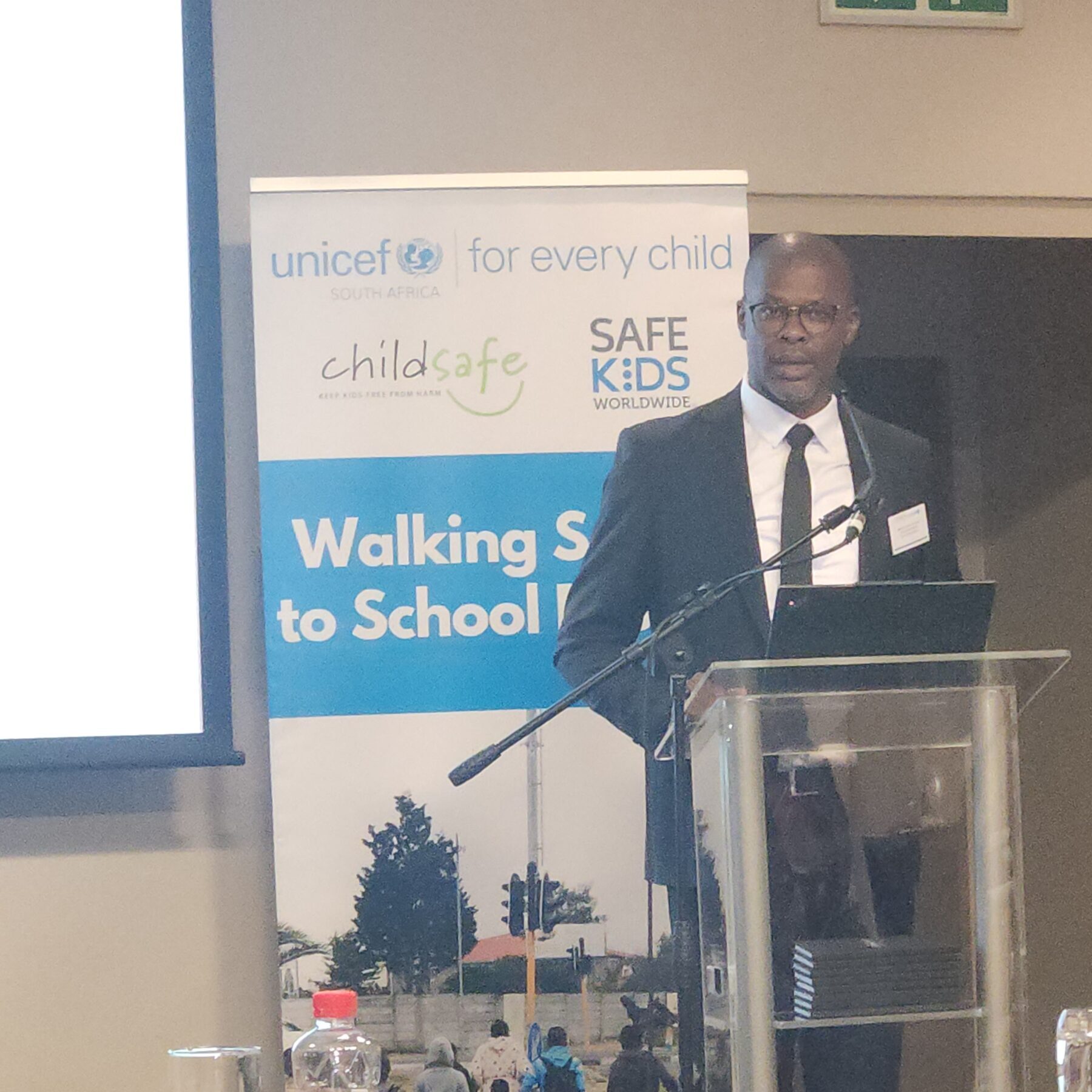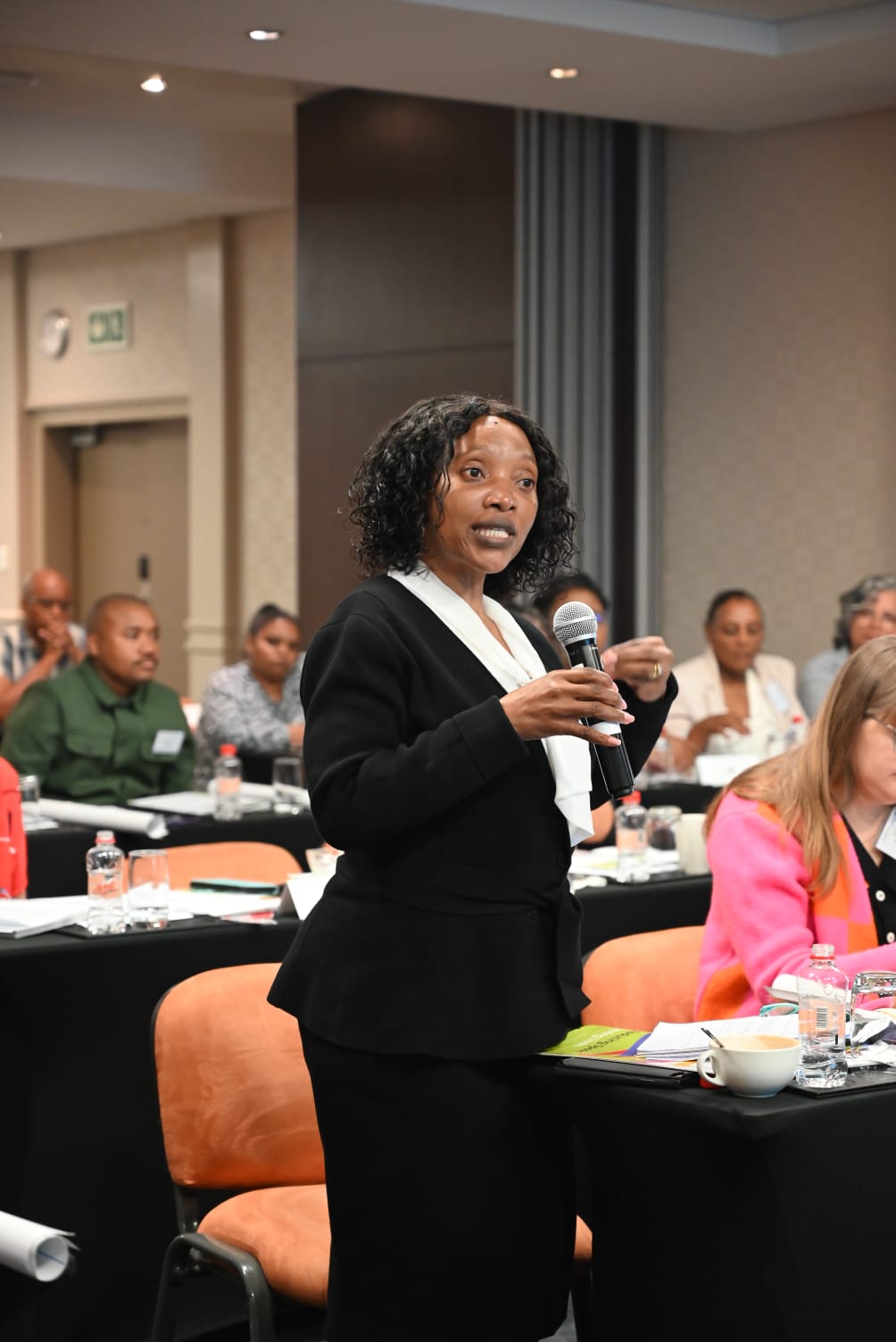FOR IMMEDIATE RELEASE
Joint Statement Issued on behalf of:
ChildSafe South Africa, UNICEF South Africa, Western Cape Mobility Minister and the Road Traffic Management Corporation
| REDUCING SPEED, SAVING LIVES |
| Systemic reforms are needed to address road traffic injuries (RTIs), which remain the leading cause of death among South African children under 14. |
Cape Town, South Africa—3 April 2025: Every year, over 1,300 children in South Africa lose their lives to road traffic incidents, with thousands more suffering life-altering injuries. These preventable tragedies account for 13% of all child deaths nationally and cost the country R9.5 billion annually. ChildSafe South Africa, in partnership with UNICEF and leading experts, unveiled its policy brief, “Reducing Speed, Saving Lives,” at a pivotal Road Safety Seminar on 1 April 2025. The brief outlines actionable strategies to tackle this national crisis and create safer environments for children.
Evidence-Based Recommendations
The policy brief provides a comprehensive roadmap for reducing injuries and fatalities among child pedestrians through key interventions:
– Speed Reduction: Enforcing 30 km/h speed limits near schools has been shown to reduce crash severity by up to 50% and significantly improve survival rates.
– Infrastructure Enhancements: Implementing child-friendly zones with speed humps, marked pedestrian crossings, and traffic-calming measures ensures safer spaces for children to walk and play.
– Behavioural Change Efforts: Addressing unsafe driver behaviour through education and awareness initiatives can reduce child pedestrian crashes by 20%.
– Stronger Enforcement: Consistent policing and tighter regulation of learner transport systems will hold drivers accountable and protect children during their daily commutes.
Voices from the Seminar: Insights and Expertise
The Honourable Isaac Sileku, Western Cape Minister of Mobility, delivered the keynote address, calling for unified action to prioritise child safety:
“Road safety remains a fundamental right. Protecting our most vulnerable road users—our children—must be a priority for all of us. Too many young lives are lost or forever changed due to preventable road incidents. We know that speed management, stronger enforcement, and continuous road safety education are key elements for reducing these tragedies. As the Western Cape Government, we are committed to working alongside organisations like ChildSafe South Africa and UNICEF to drive impactful road safety initiatives, enhance public awareness, and ensure that every child can move safely in their communities. However, we cannot do this alone. We call on all sectors—civil society, law enforcement, the private sector, and the public—to play their part in making our roads safer for children and all pedestrians. Together, we can create a culture of responsibility and care on our roads.”
Building on Minister Sileku’s call for action, Ms. Nokuthula Prusent, UNICEF Youth and Adolescent Development Specialist, highlighted the critical role of collaboration:
“Through the WATCH programme, which is one of ChildSafe’s flagship initiatives, we’ve learned valuable lessons about the impact of speed reduction near schools. Evidence globally and locally confirms that lower speeds save lives. However, addressing child road injuries requires a multifaceted response, with every sector playing its part. Civil society organisations must join hands to lobby for safer school zones, academic institutions and hospitals must generate actionable evidence, and urban planners and engineers must design child-friendly cities. By working together, we can ensure safer roads and brighter futures for all children.”
Collaboration and Systemic Change
Representatives from key stakeholders shared their expertise during the seminar, shedding light on the broader impacts of road traffic injuries:
– Ms. Refilwe Mongale, RTMC Representative, emphasized the need for data-driven strategies to address disproportionate risks faced by children in urban and peri-urban areas.
– Mr. Siphamandla Gumbi, RAF Representative, noted the severe economic toll of road crashes, which annually cost South Africa **R9.5 billion**, with head injuries accounting for nearly a quarter of this expenditure.
Road safety was also framed as a social justice issue, underscoring the heightened dangers faced by children in under-resourced communities. Prof. Ursula Rohlwink of the UCT Neuroscience Institute, shared insights on the devastating consequences of traumatic brain injuries (TBIs):
“Injury deaths among children surpass malaria, TB, and HIV combined. These preventable crashes rob families of their futures and impose lasting emotional, financial, and societal costs. Road safety interventions must focus on prevention and behavioural change to ensure safer roads for all.”
A Strong Conclusion
As the seminar concluded, Ms. Zaitoon Rabaney, Executive Director of ChildSafe South Africa, reinforced ChildSafe’s commitment to transforming road safety:
“As ChildSafe, we are committed to ensuring that every child in South Africa can walk, cycle, and play without the fear of danger or harm. The findings of the WATCH project and the policy brief, ‘Reducing Speed, Saving Lives,’ are a powerful reminder that we have the tools to prevent these tragedies—but we need collaboration, innovative thinking, and unwavering commitment to make this a reality. Our work will not stop until all children are given the safe environments they deserve.”
A Call to Action
ChildSafe, UNICEF, and their partners call on all sectors—government, civil society, urban planners, and private industries—to act now and bring the recommendations to realization. These include:
– Nationwide adoption of 30 km/h speed limits in school zones.
– Expanding behavioural change efforts to address unsafe driver behaviour.
– Investing in safer infrastructure to create pedestrian-friendly school zones.
– Strengthening enforcement to ensure compliance and regulate learner transport.
Mr. Frank Lambert, Road Safety Advocate, summed up the urgency: “Safer roads mean safer futures. We have the tools. We have the knowledge. Now, we must act decisively.”
ChildSafe remains committed to building safer communities for South Africa’s children, ensuring they grow up in environments where safety, hope, and opportunity flourish.
-ENDS-
MEDIA EQUIRIES:
ChildSafe South Africa
Shane Everts, Strategic Communications, 061 526 2200, shane@childsafe.org.za
Western Cape Mobility Department
Muneera Allie, Head of Communication, 083 755 3213, Muneera.Allie@westerncape.gov.za
About ChildSafe South Africa
ChildSafe South Africa is a not-for-profit organisation which aims to reduce and prevent injuries of children through Research, Education, and Advocacy. The organisation is a registered NPO with section 18A exemption who works with other non-profits, government, corporates and communities. Our core focus though is the prevention of unintentional injuries that are usually regarded as accidents, such as, burns, falls, drowning, road traffic crashes, choking and poisoning. For more information, visit www.childsafe.org.za





